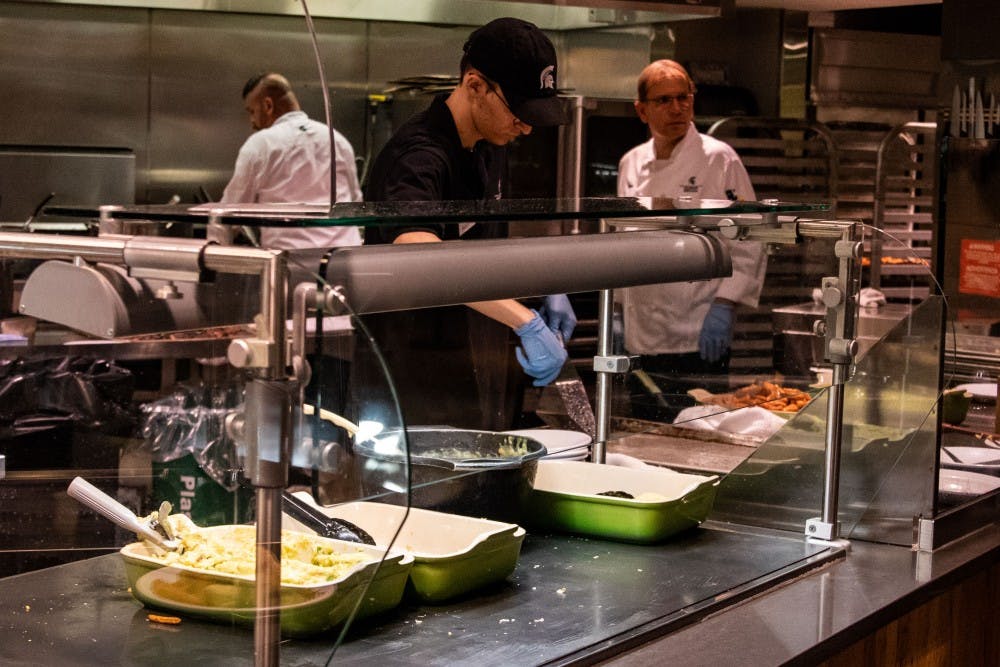The country is reeling from a greatly diminished labor pool in the wake of COVID-19, and Michigan State University is no exception.
Residential and Hospitality Services was one of the hardest-hit departments at MSU. Residential and dining halls were functionally cut out of the equation when COVID-19 forced the university online in 2020.
This led to significant staff cuts and furloughs throughout the last year-and-a-half, including staff that the department now desperately needs.
According to RHS Chief Communications Officer Kat Cooper, a high of 3,000 students were living in residence halls during the 2020-2021 school year. This year, it jumped back to a high of 15,000 students.
While RHS anticipated an increase with the return of in-person classes, it struggled to hire the staff necessary to accommodate such a number. There is a severe lack of student staff members in particular.
According to Cooper, the university generally starts the school year with around 3,900 student team members. This year, the department started with 400.
The student team members are especially important, as they man the everyday facilities used by students. Residential service centers, dining halls and on-campus retail stores are all primarily staffed by students hired by RHS.
“We have lots of people working lots of overtime hours in order to try to offer the best possible service to our students,” Cooper said.
The effects of the shortage are abundant. Only one service center is open in each hall, compared to the normal two to three. Service mixes in the dining halls are closely monitored. Even Vice President of RHS Venceslaus Gore has had to assist in the cafeteria, serving food due to a lack of serving staff.
“There's nobody to serve mashed potatoes,” Associate Provost of Undergraduate Education Mark Largent said. “That's how bad it is, you've got a vice president serving food.”
It’s not just minimum wage service jobs, either. According to Largent, all positions were cut during the pandemic. Largent said his department had to cut a lot of “behind the scenes” staff in lieu of budget cuts.
“I don't have the resources to hire for things like data analysts, some executive assistants,” Largent said. “People who do some of the daily work.”
Largent describes this school year as a rebuilding year for RHS and other departments. Rebuilding an entire staff takes time, and Cooper emphasized the university is currently trying to bring in potential recruits through the hiring process.
“We do have a lot of people in the pipeline,” Cooper said. “It just takes longer to get people hired then we would prefer.”
Support student media!
Please consider donating to The State News and help fund the future of journalism.
Discussion
Share and discuss “Residential and Hospitality Services staff spread thin as students return to campus” on social media.







